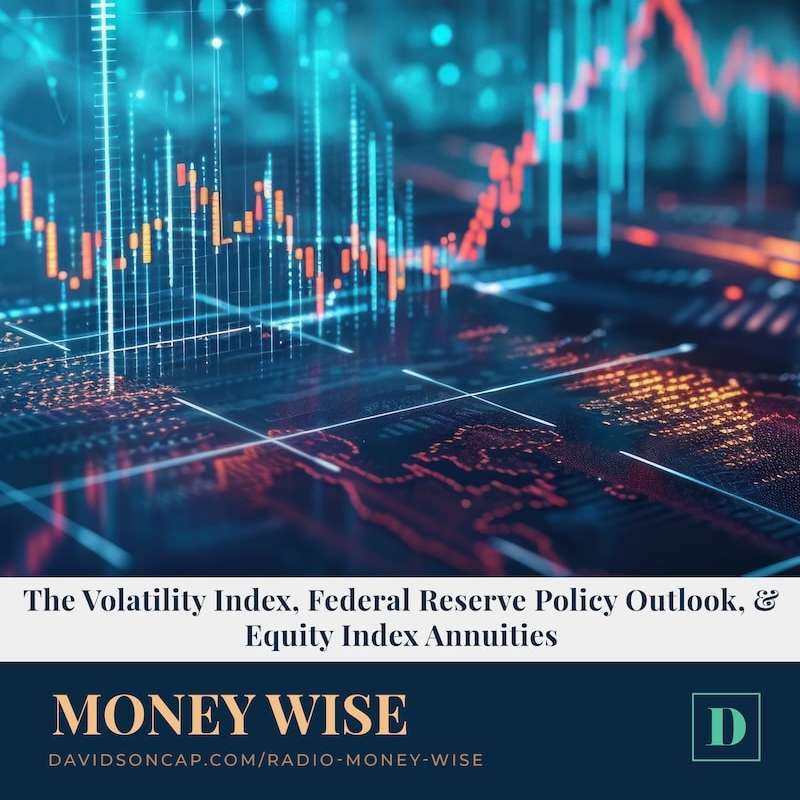When it Comes to Your Money, It’s Crucial to Find the Right Fit
If you’re looking to develop the strongest investment strategy possible for your unique situation, it may be time to consider hiring an investment advisor who can help guide you through your investment journey. With something as important as your hard-earned money, though, it’s crucial that you hire an advisor who is right for you – and who you can fully trust.
Ideally, you’ll want to find an investment advisor who is both knowledgeable, experienced, and who is an investment fiduciary. For investors who are unaware of investment fiduciaries, they are required by law to place an investor’s best interest in front of their interest. At the end of the day, advisors are people too, meaning no two advisors are the same, so finding one that’s the perfect fit for you may take some leg work on your part. Below, we’ll discuss some things that you should keep in mind when you select an advisor, as well as tips on how to find the right advisor for you.
What to Look for When Choosing a Financial Advisor
Various Types of Advisors
Like with most professions, advisors employ a variety of investment styles and disciplines. Choosing the right advisor will require some investigation and thought on your part so that you can find someone who fits your unique investment needs, style, and expectations. As an investor, you also have to ask yourself the type of relationship you would like to have with your advisor. If you’re the type of investor who prefers to make the investment buy and sell decisions but would like to have an advisor to help guide your decisions, you are best suited to work with an advisor who does not have discretionary investment management authority over your investment account. If you’re the type of investor who prefers to not make the investment buy and sell decisions, then you are best suited to work with an advisor who has discretionary investment authority.
It’s important to understand advisors who have discretionary investment management authority are required by law to be an investment fiduciary. There is an abundance of different types of advisors with various titles, certifications, specialties, and designations, here are the main types you should know:
-
Certified Financial Planners (CFP)
Advisors with the CFP® designation are individuals who have met all of the requirements of the Certified Financial Planner Board of Standards. This designation denotes that the advisor understands aspects of financial planning including investing, retirement planning, insurance, taxes, and estate planning. They must also complete at least 30 hours of continuing education credits each year to maintain their certification. While CFPs have a broad range of knowledge in the financial planning sphere, this designation doesn’t necessarily guarantee that they specialize in any certain area. It also doesn’t guarantee they have experience in managing investment portfolios. That being said, you can rest assured that CFPs do have a broad understanding of a multitude of financial products.
-
Registered Investment Advisors (RIAs)
A Registered Investment Adviser is an individual or company that is registered with a federal regulatory office, such as the Securities Exchange Commission (SEC) or a local state securities board. RIAs provide financial advice, financial planning, and investment management services on a discretionary or non-discretionary basis for their clients and are typically compensated in the form of management fees. RIAs are investment fiduciaries and are required by law to act in their clients’ best interests at all times, and they must disclose any potential conflicts of interest. If you’re the type of investor who is looking for a full-time professionally managed investment portfolio working with an RIA is your wisest choice. (Davidson Capital Management is an SEC Registered Investment Advisor and we would be happy to answer any questions you may have.)
-
Insurance Agents and Bankers
Those who work within an insurance company or a bank are not technically investment advisors or financial planners. However, some are licensed to sell mutual funds and annuities that can be used as investments. Some are even qualified to provide financial planning services. Insurance agents and bankers are not licensed to manage investment portfolios on a discretionary basis and they are not licensed investment fiduciaries. While it’s completely acceptable to buy life insurance from an insurance agent understand other investments they may sell come with hefty sales commissions for themselves.
-
Stockbrokers
Typically referred to as “full-service brokers,” stockbrokers are representatives of a brokerage firm that is licensed to sell stocks, bonds, annuities, and other investment products who are paid by commissions, management fees, or both. The reason that they’re sometimes called full-service brokers is that they do all of the trading, advising, and analysis for the client. It’s important to note that trading for their clients does not mean they are actively managing their clients’ portfolios. Unlike RIAs who are required to act as an investment fiduciary, stockbroker and their representatives are not held to the same fiduciary standard – and this is an important distinction.
Various Forms of Compensation
Being an investment advisor is a career, meaning advisors are getting paid for the work that they’re doing. Even if the fees they’re earning coming out of your pocket directly, the value of your portfolio, or aren’t clear to see, investment advisors are getting paid by you in some way. Some advisors charge a set management fee based on the value of your portfolio, some charge a commission on every transaction or financial product they sell, and some do a combination of both. Advisors are compensated differently depending on where and how they work.
As an investor, it’s critically important to fully understand how your advisor is being compensated for their work. Your advisor’s compensation structure should be transparent and easy to understand. The easiest way for an investor to add money to the bottom-line value of their investment portfolio is to ensure they are not overpaying their advisor for their services. Here are a few investment advisor compensation structures.
-
Fees
Some advisors charge fees directly to their clients depending on the services they’re providing. Other advisors will charge management fees based on assets under management or charge a one-time fixed fee for a particular type of service. RIAs typically follow a fee structure based on the value of the assets they manage. Financial planners typically charge a fee directly to their clients for producing a comprehensive financial plan. In order to generate more fees for themselves, financial planners will recommend annual updates to a client’s financial plan.
-
Commissions
For some advisors, they make money on each trade they execute. So, whenever they buy or sell shares of investments, there is a fee added to the client’s trade amount. They can also make commissions selling a wide variety of investment products; an annuity is the best example of a high commission investment product sold by investment advisors and financial planners.
-
Salary Plus Commission
The last common form of payment you see with advisors is those who are paid a base salary and then receive commissions as bonuses based on what they’re selling to the client. These types of advisors are typically found at banks and insurance companies.
SEE ALSO: Investor Psychology: How Bias Can Lead to Poor Investment Decisions
A Word of Warning
This was mentioned previously but it’s worth highlighting – stockbrokers, financial planners, and insurance agents are not required by law to act as an investment fiduciary. Instead, they are only required to uphold what is called a suitability standard of care. This means that they are required to recommend and sell investment products that are suitable for the client, but they are not legally required to find the best or lowest-cost investments for the client. A client’s best interest is not required to be placed in front of the advisor’s best interest. An advisor’s best interest is what makes them and the firm that employees them the most money from a client. This doesn’t necessarily make them a bad choice, but it does mean that if you choose to go this route, you want to find an advisor that you especially trust.
In comparison, RIAs are required to act as an investment fiduciary, meaning they are required by law to put the best interests of their clients above their own. So, while you are paying them ongoing management fees, a good RIA can save a tremendous amount of expenses over an investor’s lifetime by using the lowest cost and best-performing investment options available.
Finding the Right Fit for You
Ultimately, finding the right advisor for you will depend heavily on what exactly you need from your advisor. If you’re looking for some investment guidance and basic advice, you may benefit from using a brokerage firm. If you want hands-on, active investment management with comprehensive financial planning, then finding a Registered Investment Adviser may be the better fit for you.
Financial planning is different for everyone. It changes based on who you are, your investment goals, your relationship with money, and what you value. The advisor you choose should construct an appropriately diversified investment portfolio that accurately reflects your goals, values, and legacy. If you’re interested in hiring an advisor, you should get started with your search sooner rather than later. If you already have an advisor but something is nagging you about the relationship, don’t assume your worrying is needless – get a second opinion.
At Davidson Capital Management, we offer a depth of knowledge and breadth of experience managing clients’ investment portfolios. Our company has been committed for more than 32 years to putting our clients’ best interests first and helping them grow their investments and build wealth.
We have a team of highly experienced professional RIAs who actively manage clients’ assets in-house with a stringent investment management philosophy, as well as provide ongoing financial planning and analysis. If you’d like to begin a conversation about your investment strategy and financial future, please contact us today.




